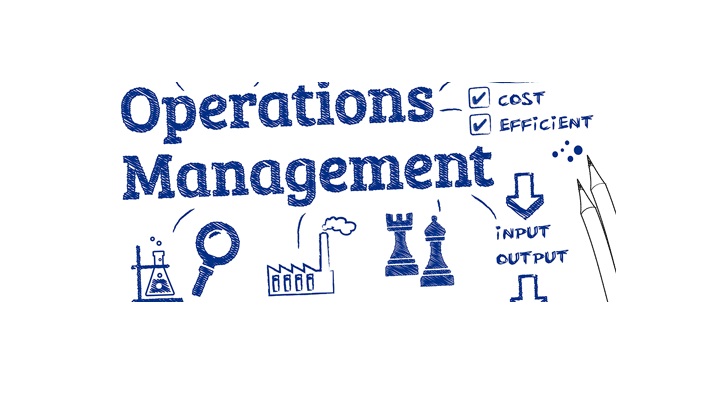In an increasingly competitive business environment, organizations are constantly seeking ways to enhance efficiency, reduce waste, and improve overall performance. Lean operations management principles focus on maximizing value while minimizing waste. The integration of AI in operations management has emerged as a powerful tool to support these principles, enabling businesses to streamline processes, optimize resources, and enhance decision-making. This article explores how AI supports lean operations management and the benefits it brings to organizations striving for excellence.
Understanding Lean Operations Management
Lean operations management is a systematic approach aimed at improving efficiency by eliminating waste, enhancing quality, and delivering value to customers. The core principles of lean management include:
- Value Identification: Understanding what customers perceive as valuable and focusing efforts on delivering that value.
- Value Stream Mapping: Analyzing the flow of materials and information to identify and eliminate waste.
- Continuous Improvement: Fostering a culture of ongoing improvement through incremental changes.
- Empowered Teams: Encouraging employee involvement and input in optimizing processes.
While these principles have proven effective, the implementation of AI can significantly enhance their effectiveness.
How AI Enhances Lean Operations Management
1. Streamlining Processes
AI technologies, such as machine learning and natural language processing, can automate repetitive tasks and streamline operations.
- Task Automation: AI can handle routine tasks, such as data entry and report generation, freeing employees to focus on higher-value activities. This shift enhances productivity and reduces the likelihood of human error.
- Process Optimization: AI algorithms can analyze data to identify bottlenecks and inefficiencies in workflows. By providing insights into process performance, organizations can implement targeted improvements that align with lean principles.
2. Enhancing Decision-Making
AI supports data-driven decision-making, which is crucial for lean operations management.
- Predictive Analytics: AI can analyze historical data and identify trends to forecast demand, enabling organizations to make informed decisions about inventory levels and resource allocation. Accurate forecasts help minimize excess inventory and reduce waste.
- Real-Time Insights: AI provides real-time data analytics, allowing managers to monitor performance and respond swiftly to changing conditions. This agility is essential for lean operations, where timely decisions can prevent waste and enhance efficiency.
3. Reducing Waste
One of the primary goals of lean operations is to eliminate waste, and AI can play a pivotal role in achieving this objective.
- Inventory Optimization: AI algorithms can analyze sales patterns and predict demand fluctuations, ensuring that inventory levels are aligned with actual needs. This alignment minimizes overstock and stockouts, reducing holding costs and waste.
- Process Waste Identification: By analyzing workflows, AI can identify non-value-added activities and areas where resources are being misused. This identification allows organizations to streamline processes and enhance efficiency.
4. Facilitating Continuous Improvement
Continuous improvement is a cornerstone of lean management, and AI can enhance this process through data-driven insights.
- Feedback Loops: AI can facilitate the collection of feedback from various sources, including employees and customers. By analyzing this feedback, organizations can identify areas for improvement and implement changes that enhance value.
- Performance Monitoring: AI-powered tools can continuously monitor key performance indicators (KPIs), helping organizations track their progress toward lean goals. This ongoing monitoring ensures that improvements are sustained over time.
5. Empowering Teams
AI in operations management can also empower teams by providing them with the tools and insights they need to optimize their work.
- Collaborative Tools: AI-driven platforms can enhance collaboration among team members by providing shared access to data and insights. This transparency fosters a culture of teamwork and shared responsibility for lean initiatives.
- Skill Development: AI can identify skill gaps within teams and recommend training programs to enhance employee capabilities. Empowered employees are more likely to contribute innovative ideas for process improvement.
6. Enhancing Customer Value
Ultimately, lean operations aim to deliver maximum value to customers, and AI can support this objective in various ways.
- Personalization: AI can analyze customer data to deliver personalized experiences, enhancing customer satisfaction. By understanding customer preferences, organizations can tailor their offerings to meet specific needs.
- Quality Improvement: AI technologies can improve quality control processes by quickly identifying defects and issues in production. This enhancement ensures that products meet customer expectations and reduces the likelihood of returns or rework.
Best Practices for Integrating AI in Lean Operations Management
To effectively leverage AI in support of lean operations management principles, organizations should consider the following best practices:
1. Define Clear Objectives
Before implementing AI solutions, organizations should establish clear objectives that align with their lean initiatives. This clarity ensures that AI efforts are focused on delivering measurable improvements.
2. Invest in Quality Data
AI relies on high-quality data to generate accurate insights. Organizations should prioritize data collection and management, ensuring that relevant data is accessible for analysis.
3. Foster a Culture of Collaboration
Encouraging collaboration between AI specialists and operational teams is essential for successful implementation. By working together, teams can identify opportunities for AI integration that align with lean principles.
4. Provide Training and Support
Investing in training for employees on AI tools and technologies is crucial. This training empowers teams to make the most of AI capabilities and fosters a culture of continuous improvement.
5. Monitor and Evaluate Performance
Regularly assessing the impact of AI initiatives on lean operations is essential for ongoing success. Organizations should track KPIs and gather feedback to ensure that AI efforts are delivering value.
Conclusion
The integration of AI in operations management offers significant advantages for organizations striving to implement lean operations principles. By streamlining processes, enhancing decision-making, reducing waste, facilitating continuous improvement, and empowering teams, AI can help businesses achieve their lean goals. As organizations continue to navigate a rapidly changing landscape, leveraging AI effectively will be crucial for maintaining competitiveness and delivering exceptional value to customers.
